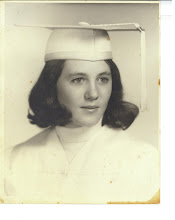
Have you ever done anything in your life that made the world easier, and more accessible for millions of people for generations? A tall order, no? Well, that is exactly what the efforts of a lone, blind Frenchman did.
Today is the 200th anniversary of the birth of Louis Braille. Born in France on January 4, 1809, Braille was sighted until an accident in which he poked out an eye with an awl led to a subsequent infection that left him blind in the other eye as well. Sent to a school for the blind that seems more like a prison, including stints on bread and water as punishment, Braille nonetheless excelled and became a talented cellist and organist who played throughout France. While at the school, the Royal Institution for Blind Youth, he was taught to read by the system currently utilized, that of reading normal letters that had been embossed on the paper creating raised symbols (a system devised by an instructor, Valentin Houy). While there, Louis was one of the students to the visit of a French Captain, Charles Barbier in 1821, the Captain showed the students his code system of raised dots that was used on battlefields when speaking would have been disasterous.

Louis modified the Captain's system to use only 6 raised dots, in various orders, to represent all of the letters of the alphabet. It used the idea of raised letters, but simplified it and was a system that could be (and was) conformed for other languages as well. But it was cumbersome system, requiring a tool (stylus) and a metal sheet that could be laid over a heavy sheet of paper into which the appropriate raised dots were impressed. It was Braille again, later, along with a friend, Pierre Foucault, who designed a machine that would sped up the system of writing.
Braille was ultimately used worldwide not only for reading, but was modified for music and technology. Books were generated in Braille, allowing such famous students as Helen Keller to attend college and keep up with the seeing students. The vision impaired can now learn to play music and work with computers and there is technology available that transcribes books into Braille versions or Braille books into audio books.
Despite his harsh experiences, Braille went on to become a teacher at the Institute, although his system was not adopted during his tenure there, though it was recognized officially in France two years after his death at the age of 43 from Tuberculosis, in 1852.
So let's have a Happy Birthday for the man who gave millions of blind people access to the world. Joyeux Anniversaire, Louis!

